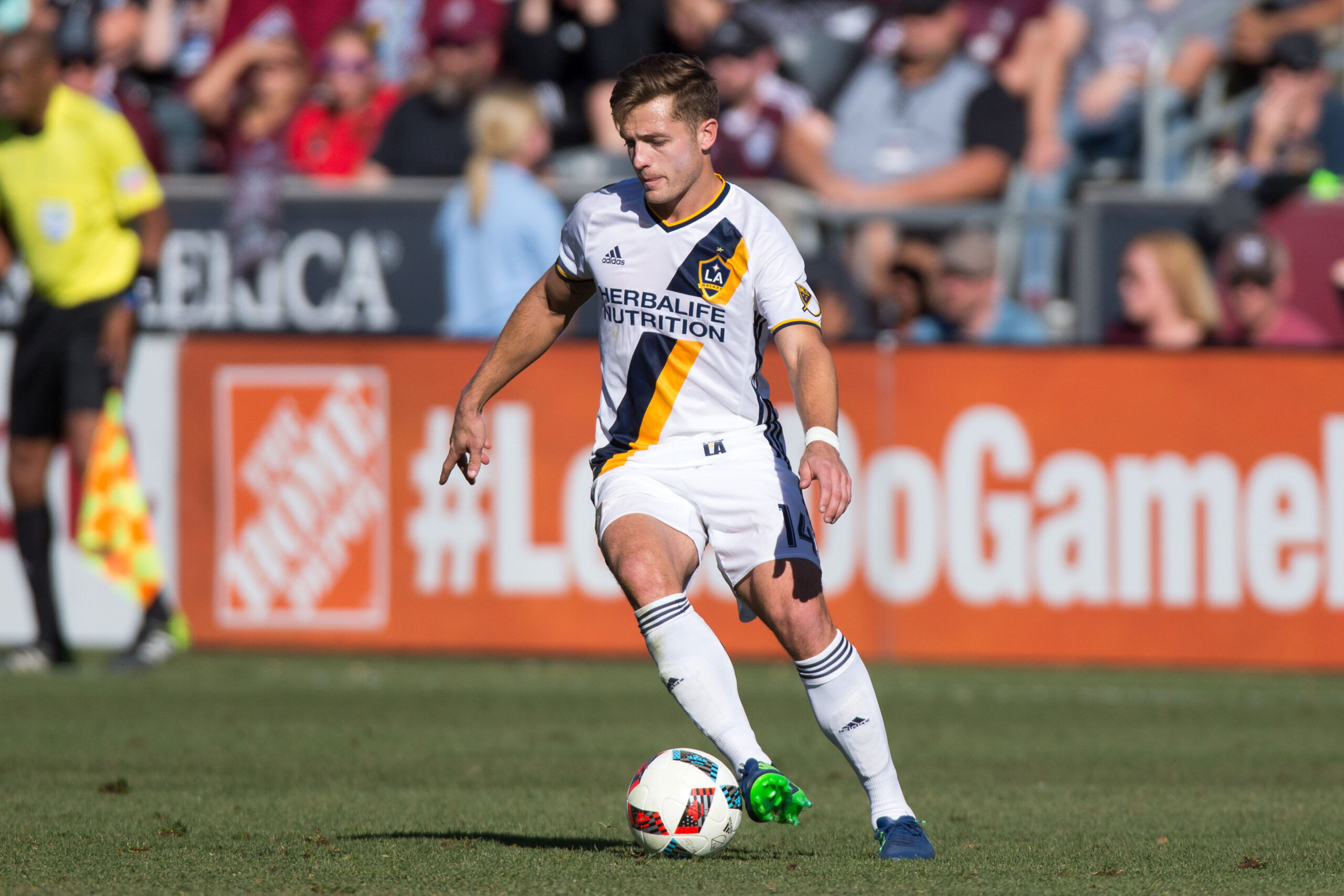Robbie Rogers never played for the United States in a men’s FIFA World Cup but he has been personally invested in what is arguably the greatest global sports event since he was seven years old.
He was in a crowd of over 90,000 at the Rose Bowl in Pasadena to watch the hosts beat Colombia at USA ‘94. A decade later, he was representing his country at Under-20 level, conscious that the game he loved was unwelcoming for gay men like him.
The signals that soccer culture sends out are just as powerful today and Rogers has deep concerns over the World Cup’s weak links with the LGBTQ community, as he explains in a new feature interview with The Athletic.
Get off the sidelines and into the game
Our weekly newsletter is packed with everything from locker room chatter to pressing LGBTQ sports issues.
Casting his mind back to that match 30 years ago, he says: “I went with my dad and I was like, ‘Holy f***, this is incredible.’
“The stadium, the energy, all the fans tailgating outside — it was insane. But I was surrounded by an incredibly homophobic religion, my family was very conservative and football didn’t have any gay athletes.
“So I was like ‘OK, I want to be loved by this religion that I’m very interested in, that I’ve been raised in, but that is telling me that I’m not acceptable.’ And also (I want) to really survive in this family, to feel loved and supported.”
As he explains to writer Adam Crafton, Rogers stayed alive in soccer by shutting down his sexuality. In the year he spent at Leeds United from 2012 to 2013, he often overheard “gay trope jokes”.
He also describes an incident where his teammates — not knowing Rogers was “deeply closeted” — were openly homophobic as he sat alongside them, scared and silent.
He quit the English club in early 2013 and came out publicly as gay a few weeks later, saying he was walking away from the game for the good.
Happily, he was lured back to play for L.A. Galaxy later that same year and ended up winning a second career MLS Cup before injury problems put the full stop on his playing career.

Now a successful producer, he is in the thick of awards season for “Fellow Travelers”, the Showtime drama about the Lavender Scare of the 1950s and its impact on the lives of gay men and their families in the years that followed. There has recently been recognition from the Golden Globes and the Critics’ Choice Awards, with more to come.
As far as football is concerned, he hasn’t forgotten the wide-eyed wonder of seven-year-old Robbie or the fear that began to take hold later on.
When asked to contemplate the last men’s World Cup in Qatar and the 2034 edition in Saudi Arabia, and whether gay fans and players can find any real comfort at tournaments held in countries were homosexuality is criminalized, Rogers despairs at the closed-minded attitudes on LGBTQ inclusion.
“I feel having World Cups in Qatar or Saudi Arabia can still be a good thing as long as you can still have the conversation,” he says.
“So if FIFA believes that football is for everyone, then great, Saudi Arabia, you are going to spend X amount of dollars, the whole world is going to come to you. But you have to embrace that the world looks different and people will come from all walks of life.
“So there’s going to be different ways people express themselves — and it might be two men kissing at the stadium celebrating that Colombia scored against Germany. You have to be open to that.
“But to say: ‘We’re going to award the World Cup to a place that’s incredibly homophobic and also it is not going to be accepting of LGBT fans’, then that’s irresponsible, not fair, awful and just actually disgusting.”

Distinctions will inevitably be drawn on human rights between the two World Cups staged in the Gulf and those in between — the US, Canada and Mexico are hosting in 2026, and then Spain, Portugal and Morocco in 2030.
Rogers is pragmatic about soccer’s new world order but more than anything, he empathizes with the next generation of players who are dreaming big while having to hide part of who they are.
He adds: “If a young kid is a gay footballer, closeted and the World Cup is somewhere that I wouldn’t even be accepted, that I would be whipped for being who I am, that I would be thrown into jail or possibly beheaded for who I am, that is an incredibly dangerous message that you’re sending to a young person.”

























